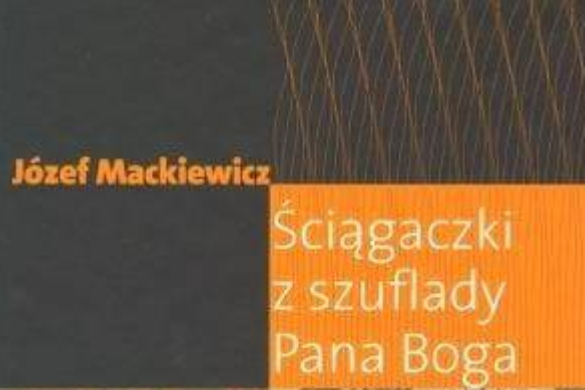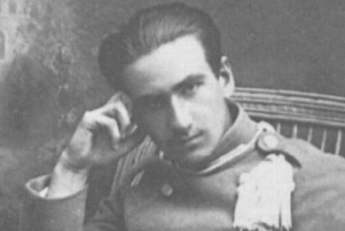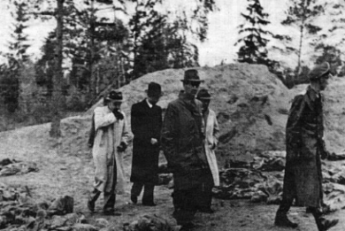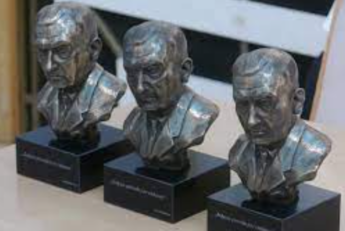
Squeegees from God’s drawer
“Squeegee from God’s Drawer” (pl. “Ściągaczki z szuflady Pana Boga”) is a collection of selected short stories with an afterword by the author’s wife, Barbara Toporska.
The stories were placed in two chapters: “Under every sky” and from the volume “The 16th between three and seven”. Stories talk about the past and stimulate reflection. The author mentions the partitions, writes about the times of the Second Polish Republic, as well as the period after World War II.
In the stories we find figures of people and contours of the landscape, but these stories symbolize topics that Mackiewicz will devote attention to in the future and which have a deep meaning, although at first glance they are simple.
In his stories, the author avoids pathos, there is no dedication or patriotic atmosphere in them. Instead, there is a description of people caught up in war, accompanied by hunger, fear and pain. In the story “A Cousin of the Enemy Hussars” the image of the war that the author-narrator himself experienced as a soldier in 1919-1920 is presented, we read how he ended up in Lithuanian captivity, where he met his cousin, and how this meeting saved the narrator from being shot.
The author rejects the belief of his compatriots that Poles are a better nation than others. For Mackiewicz, there is no division into nations. In the novel, the narrator takes the side of the little Russian, rejecting the divisions imposed by history and focusing on interpersonal bonds. In “Ślizgawka” the author presents a little Russian. Friendship with him is not accepted by his family due to the aversion to Russians as invaders, which is why the slide is the only place where barriers disappear.
The two novellas “The Ballad of the New Helmsman” and “Murder on the Waka River” depict ordinary people condemned to love. In the ballads, the author does not focus on the misfortunes that war brings, but only presents the love that could happen under any sky. Even Soviet.
It is worth mentioning the story “Marceli Swat”, which similarly presents a picture of a family drama that can happen under any sky. It is a story with the Soviet occupation in the background.
All the stories are characterized by the high culture of the language used by J. Mackiewicz. It is a language that is simple at times, anachronistic at times, but definitely breathtaking.







